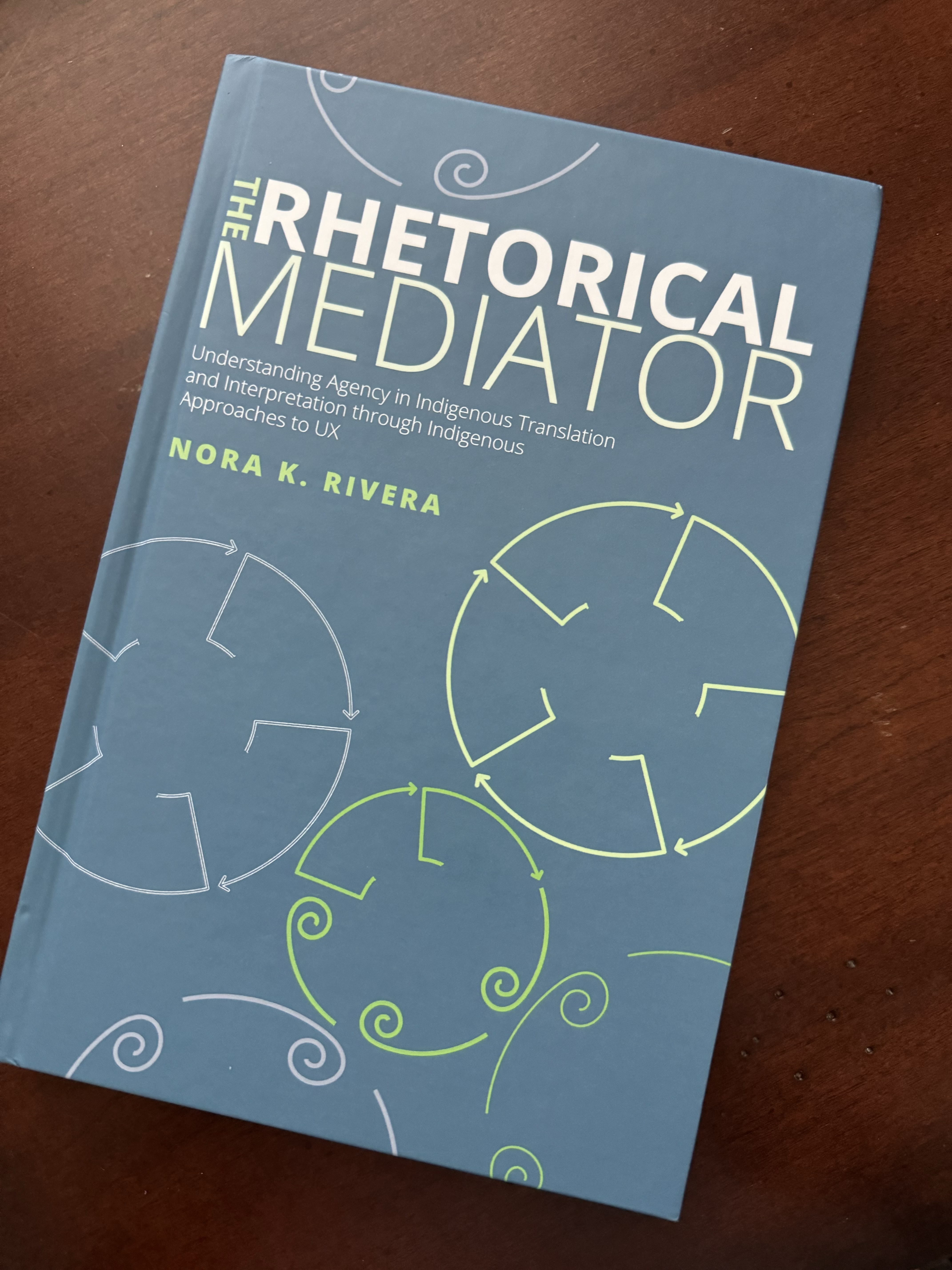
Faculty Book: Understanding Agency in Indigenous Translation and Interpretation through Indigenous Approaches to UX
January 24, 2024
 The Voice of Wilkinson recently sat down with Dr. Nora K. Rivera (English) to discuss her new publication, The Rhetorical Mediator: Understanding Agency in Indigenous Translation and Interpretation through Indigenous Approaches to UX (University Press of Colorado, 2024). This is Rivera’s first published book as a single author, but the accomplishment caused some mixed feelings when she considered why the book needed to be written.
The Voice of Wilkinson recently sat down with Dr. Nora K. Rivera (English) to discuss her new publication, The Rhetorical Mediator: Understanding Agency in Indigenous Translation and Interpretation through Indigenous Approaches to UX (University Press of Colorado, 2024). This is Rivera’s first published book as a single author, but the accomplishment caused some mixed feelings when she considered why the book needed to be written.
“I feel a great deal of responsibility and accountability to write about Indigenous language practices with respect. As a Mestiza, a woman of mixed blood—Indigenous and European, I found that writing about Indigenous matters is quite complicated because Mestiza/o/e Western ideologies have contributed a great deal to the discrimination of Indigenous languages and their speakers,” she said. “I feel conflicted about publishing this book but also grateful to everyone who inspired it.”
The Rhetorical Mediator analyzes the work of translators and interpreters of Indigenous languages. Rivera’s research is guided by Indigenous and decolonial theories and is framed by two disciplines: translation and interpreting studies (TIS) and technical and professional communication, an adjacent field to rhetoric and composition that centers on communicating through technology or about technical, specialized topics.
“The idea for the book came about during an event I helped coordinate in the Summer of 2019 as a doctoral student. A good friend and colleague invited me to collaborate in coordinating the first International Unconference for Indigenous Interpreters and Translators in Oaxaca, Mexico. An unconference is a conference where participants guide the discussion, a good collective approach to working with Indigenous groups. The event brought together close to 300 participants from Peru, Mexico, and the United States, most of whom were interpreters and translators of Indigenous languages working in highly technical, specialized environments (i.e., legal, medical, and educational),” she said.
It was during the event designing process, led by an Indigenous NGO, when she realized that what they were doing resonated with an interdisciplinary methodology called user experience, or UX, often used in technical and professional communication. UX focuses on the users and is used in technical fields to design better products, services, content, and processes.

Dr. Nora K. Rivera
While researching and writing the book, she learned a great deal about the struggles of Indigenous language speakers in Latin America and how they are similar to what Spanish speakers face in the United States. She reflected on her Latin background and her relationships to Indigeneity and to, “accept the social, historical, cultural, and linguistic complications and ambiguities that come with being someone of Indigenous and European mixed blood, no matter how far my generational connections go.”
Rivera hopes her research in this book will provide tools for readers to engage with non-Western perspectives in their work and consider the ethical implications of doing so.
“I hope my work guides people working in educational, legal, and medical institutions and technical fields to engage with non-Western perspectives. Cultivating critical empathy that reflects on diverse practices and points of view is an important skill that benefits everybody.”

